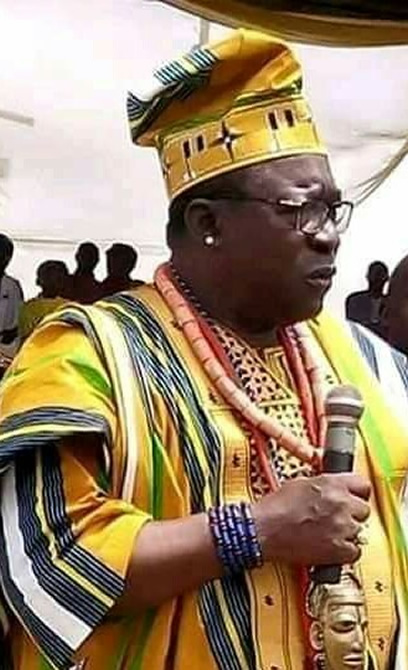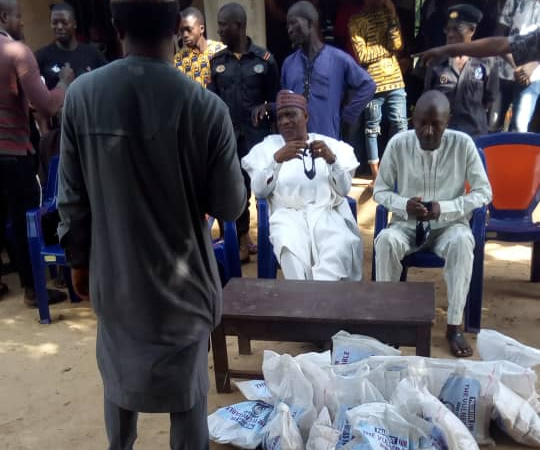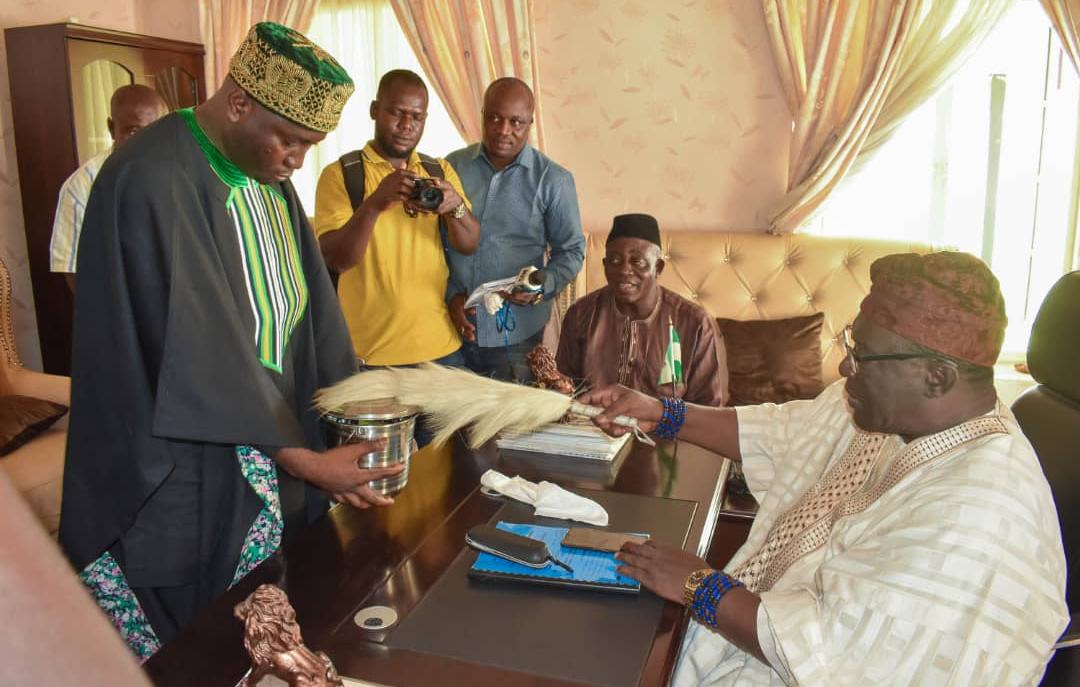Opinion
The Making of Heroes, Saints and Martyres; The Point of Departure in Deconstructing the Inikpi Legend of Igala Land
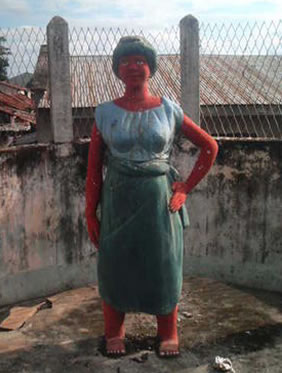
The history of the Igala people and their kingdom is surffused with invasions, battles, wars and conquests just like many people of other kingdoms who were their contemporaries in those days of closed societies. push({}); The climax in their historical account was the altruistic sacrifice by the Atta (King) of Igala of his only daughter, Princess Inikpi. The princess was buried alive as dictated by the Seer who divined that their gods decreed it in order for the kingdom to avert the drumbeat of impending war being plotted to be waged by the neighboring more powerful Bini Kingdom.
This scenario sets chains of actions and reactions culminating in the divination by itinerant false seers and pretenders to occult powers. The recommendation of this divination was the emotional and highly thought provoking demand by the gods of the land; that princess Inikpi must be sacrificed to appease the gods who would ultimately aid the King’s warriors defeat the kingdom’s adversaries in the imminent war. Until today this historical narratives had successfully established the basis for heroization of Inikpi in Igala land even as modern statehood has become the basis of political identity of the land and people.
The story of Princess Inikpi is one of bravery and heroism, morbid but inspiring as capable of cult following hence her statue in the Idah market square. She is remembered among the Igala people as a very beautiful and intelligent princess whose selfless sacrifice helped the survival of the Igala kingdom from the prevalence of wars of conquest by marauding warriors from other kingdoms during the pre colonial closed societies of Africa.
In today’s igala land, political identity within the modern state of the Nigerian state federation, the wars and divinations may no longer find a place, but the need for interrogations and deconstruction of myths leads this writer to embark on his intellectual exercise to elicit robust debate for dialectical analysis. In the present day Igala land the princess would have lived and her people and kingdom safe from their perceived or real adversaries. Modern warfare is not won through divinations based on superstitions, but by superior armament backed by strategies and military personnel for speedy execution rather than any form of sacrifice.
Analogies of such superstitious insinuations abound from other parts of the world dating back to remote past in their histories too. From ancient Greek mythology, independence cannot be more emphatically asserted than by voluntary submission to death. Even suicide is countenanced in the pagan tradition, and in some cases even recommended. In any society that places complete authority in a supreme external power, it must be counted as sin. The high souled man encounters death cheerfully for glory sake, and we have seen that death usually under remarkable circumstances is a prerequisite to heroization. Some people even invite death in the service of religion or patriotism when it serves the spiritual welfare of the generality.
In the ancient closed societies, many of these pretenders abound in different places to render their superstitious services to the willing and gullible. They charged fees for oracles they issued in ambiguous or unintelligible form and exploited private matters communicated to them for the purpose of blackmail. Sometimes, they affected various antics to display their purported pretanatural powers. They know too well that the prime motivations of men all over the world are; Hope and Fear and they consciously set about exploiting these motives. They get along with people in high standing within their societies as their beneficiaries and benefactors. Until this modern day, people in positions of political power great riches and wealth look up to them for fear of the unknown. We can find them in different shades plying their trades to the willing and gullible even within the churches and mosques dotting the landscape of our towns and cities, big business though. The divination that sentenced Princess Inikpi to her early grave had done same to many unsung victims of false divinations by false seers and charlatans who feed fat on the age longed primordial motives of the homosapiens; Fear and Hope. We live witness to it in the form of ritual killings by the day as access to the institution of money becomes intensely pervasive in Nigeria. History is always repeating itself by people reinventing the wheels.
Author Profile
-
Comrade Alex Ameh Ogbu is an Abuja based Media Practitioner and a prolific writer that writes mostly from Akatekwe Kingdom.
He is also the National Convenor Generation for Change Africa Initiative GFCAI. He can be reached via: onwaters2011@gmail.com
Latest entries
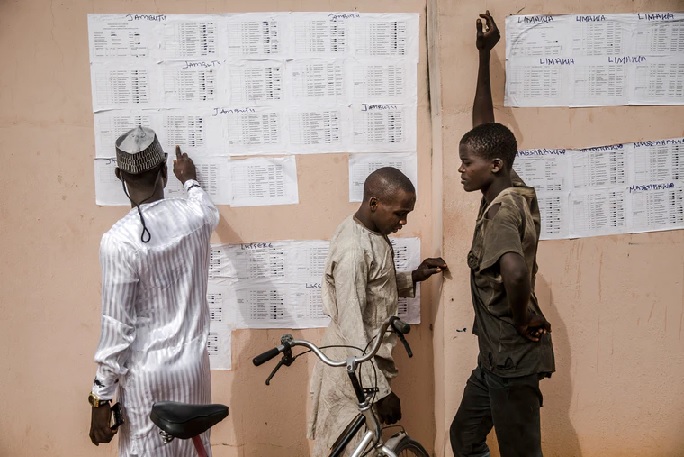 ArticleOctober 2, 2019The Travesty of Democracy through Sham Elections in a Rogue State: A Ride towards Anomie
ArticleOctober 2, 2019The Travesty of Democracy through Sham Elections in a Rogue State: A Ride towards Anomie ArticleAugust 7, 2019The Press Cannot Be The Watchdog Of Society Without Vibrant Investigative Journalism
ArticleAugust 7, 2019The Press Cannot Be The Watchdog Of Society Without Vibrant Investigative Journalism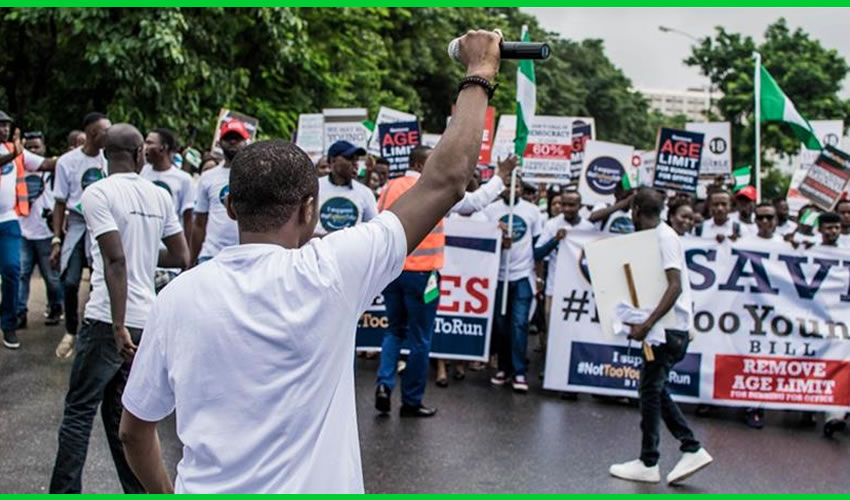 ArticleApril 16, 2019The Nigerian Youths and The Challenges Of Generation Gap; A Call To Action
ArticleApril 16, 2019The Nigerian Youths and The Challenges Of Generation Gap; A Call To Action OpinionApril 16, 2019The Making of Heroes, Saints and Martyres; The Point of Departure in Deconstructing the Inikpi Legend of Igala Land
OpinionApril 16, 2019The Making of Heroes, Saints and Martyres; The Point of Departure in Deconstructing the Inikpi Legend of Igala Land
Opinion
Tinubu’s Subsidy Removal And The Albatross Hunting Nigerians, by Rayyan Alhassan

Fuel subsidy removal by the present administration of President Bola Tinubu has come with a thunderous alarm. Although the intention may be good, pure and sincere, and in fact it is even noble but the reality now is that it is severely haunting everyone. adsbygoogle || []).push({}); adsbygoogle || []).push({}); Both the haves and haves-not are wailing. It is dealing a fatal knockout punch on teeming citizens, whose lives have since been made miserable and wretched. The Nigerian economy had almost strangulated them.
But it appears that the ‘ill-conceived’ idea to abruptly end the payment of subsidy by the Federal Government will finish the ‘job’. Less than two months after the ‘Petrol Subsidy is Gone’ proclamation by the President, on the occasion of his May 29 inauguration as Nigeria’s 16th leader, life has become unbearable and hopeless for many Nigerians.
Survival is now only for the fittest. The hope that their ugly fortunes will turn around under a Jagaban Presidency may just be fading away, or so it seems. The hue and cry over the subsidy removal may have since simmered. But the painful groaning by citizens will not just end. Nigerians are already battling to cope with the new normal of soaring transportation costs, and food prices’ inflation, among other negative impacts of the subsidy policy review.
With the harsh economic reality now starring everyone on the face – except the political class, possibly – the few men and women of good conscience left among us, who additionally have Tinubu’s ears must not remain docile. If it is possible, they should impress Mr. President to totally backtrack his decision on fuel subsidy. It will be patriotic, if not exemplary.
Tinubu has no choice but to wade in. He must arrest the socio-economic bedlam, triggered by not only the subsidy removal he singularly orchestrated. But the recent hike in the price of Premium Motor Spirit, PMS. On Tuesday, 18th July 2023, the Nigerian National Petroleum Company Limited, NNPCL, offered Nigerians a ‘sumptuous desserts’.
But the desserts were not the ones that will be nutritious to the body. That is just how we should describe the hike of fuel price to N617 from N537, by the NNPCL. The NNPCL and its apologists have attributed the latest increment to market forces at play.
But the organized Labour and other workers’ unions, together with some prominent Nigerians won’t stomach it. The Nigerian Labour Congress, NLC, described the recent increase in pump price as a threat to the socio-economic well-being of the citizens. It feared that the price of fuel would hit N1,000 per litre soon.
As for the Nigerian Union of Journalists, NUJ, the new price regime of PMS is an “over kill”. “We are saddened by the fact that today, most people can hardly commute to work or other places of business without too much stress, because the embarrassing sudden surge in petrol prices has made it so,” the NUJ said, in a statement issued by Shuaibu Usman Liman, its National Secretary.
The arbitrary hike of fuel cost to N617 will absolutely hurt Nigerians, and in many diverse ways too. For instance, it will make a large section of the country’s population fall deeper below the poverty net, while consumer spending’, and purchasing power will depreciate.
On one hand, the petrol hike has the potential to prevent manufacturers from producing below their targeted capacities, even as so many firms operating as private sector organisations will be forced to downsize their workforce. As things stand now, the cost of most goods and services have already hit the rooftop. And if care is not taken, Nigeria should be preparing to battle looming food insecurity, together with other life-tormenting emergencies.
With Boko Haram fighters, the Islamic State of West African Province (ISWAP) terrorists, armed bandits, oil thieves, kidnappers and a host of other criminals already holding the country to ransom, this hike will blow only an ill wind. It is verily going to escalate all sorts of criminalities in the land, as many youths and citizens get impoverished. This should not be what is heralding the Tinubu era, in Nigeria’s modern evolution.
Meanwhile, contrary to what many of us are forced to believe, Nigeria is not the only country in the world that subsidizes energy products like petrol or even some basic public services that its citizens enjoy. In fact, developed or advanced nations like the United States, France, Germany and the United Kingdom, UK, also do.
About $50 billion is what the United States is estimated to be spending annually to subsidize fossil fuel energy derivatives, including petrol and diesel for its citizens. Last year alone, two world superpowers – China and Russia – expended a mind-boggling $130 billion and $30 billion to subsidize energy, respectively for their citizens. And this is because they prioritize energy security as a matter of national security.
How about the UK? It has a $100 billion rolling subsidy scheme [energy price cap] for energy consumers in the country. Germany, on the other hand, is proposing to spend €5 billion this year alone, in subsidizing energy for manufacturers. Norway, another European nation, has already extended subsidy on electricity for its citizens into 2024.
It is ironic that Nigerian government officials, some ignorant citizens and arm-chair economists are hailing Tinubu for ending the subsidy regime. How they fail to realize that abrogating subsidy is the surest way of impoverishing teeming Nigerians. But they need to be enlightened.
Unlike Nigeria, oil-producing countries like Saudi Arabia, Kuwait, Angola, Venezuela and Iran are not contemplating doing away with it (subsidy), at least for now. On the contrary, they are providing generous subsidies for a range of fossil fuel energy derivatives like petrol, diesel and cooking gas for their citizens, as benefits of their natural endowments with hydrocarbons.
Let everyone who cares to listen, especially our leaders, know that corruption, low productivity, insecurity and mismanagement of Nigeria’s oil and gas assets and resources, are chief reasons the country is finding it difficult to meet its obligation of energy security to its citizens, unlike the aforementioned countries.
The idea of dishing out palliative items and provisions to distraught citizens will be welcomed, at any time. But only an insensitive government would have gone ahead with the disbursement of the proposed N8,000 handout as palliative to a phantom 12 million low-income Nigerians.
That President Tinubu eventually made a volte-face on the ‘sharing’ of the worthless N8,000 to some ‘poor citizens’ is one informed decision that has saved his government’s face. But it won’t be erasing the scar of bruises or heal the injury of the subsidy removal, many Nigerians suffered.
That is why Mr. President must think out-of-the-box in engineering a practical solution to the hardship citizens have been experiencing, since the Day One of his administration, following a pronouncement made without careful thought for the masses and their plights. To yearn for the days of the fuel subsidy will be wishing Nigeria doom.
But of what use is a policy directive that inflicts only pain, rather than ameliorate the collective hardship citizens are facing? I will leave that to you, the reader, and then of course, those who are presently saddled with the responsibility of sailing the Nigerian ship to the Promise Land, to ponder over.
As for our dear President Bola Ahmed Tinubu, an ample opportunity is still waiting for you to correct one perceived wrong against Nigerians. I am talking about ending fuel subsidy payments, without putting in place necessary measures to cushion the prevailing socio-economic turmoil in our polity.
Mr Alhassan, a social critic, wrote from Abuja
Author Profile
Latest entries
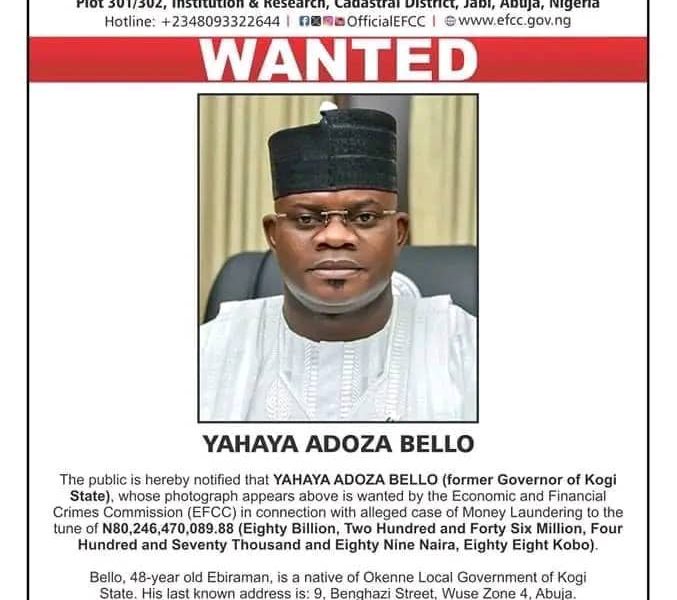 NewsApril 18, 2024Alleged N80.2billion Money Laundering: EFCC Declares Immediate Kogi Ex-Governor Yahaya Bello Wanted
NewsApril 18, 2024Alleged N80.2billion Money Laundering: EFCC Declares Immediate Kogi Ex-Governor Yahaya Bello Wanted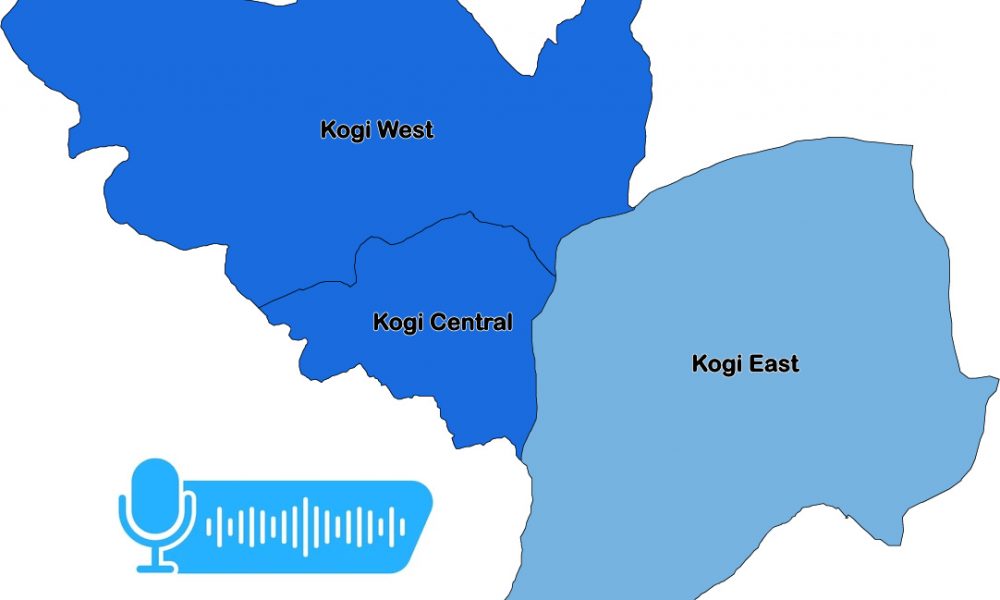 NewsNovember 6, 2023Another Massive Plan By APC To Rig Kogi Election Uncovered!
NewsNovember 6, 2023Another Massive Plan By APC To Rig Kogi Election Uncovered!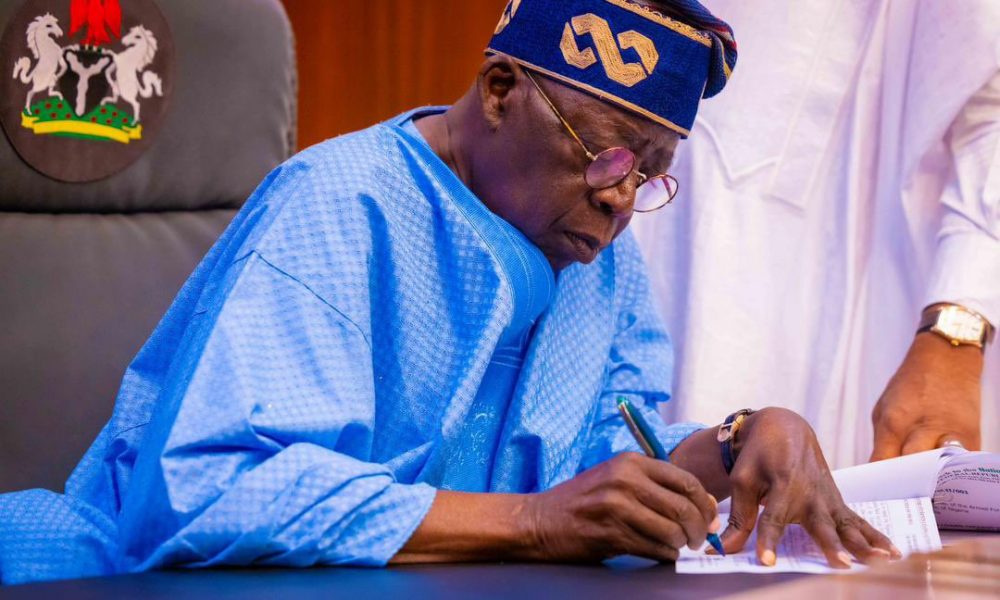 Food and AgricultureAugust 1, 2023Food Security: FG Started The Distribution of Subsidised Farm Inputs to Small Holder Farmers
Food and AgricultureAugust 1, 2023Food Security: FG Started The Distribution of Subsidised Farm Inputs to Small Holder Farmers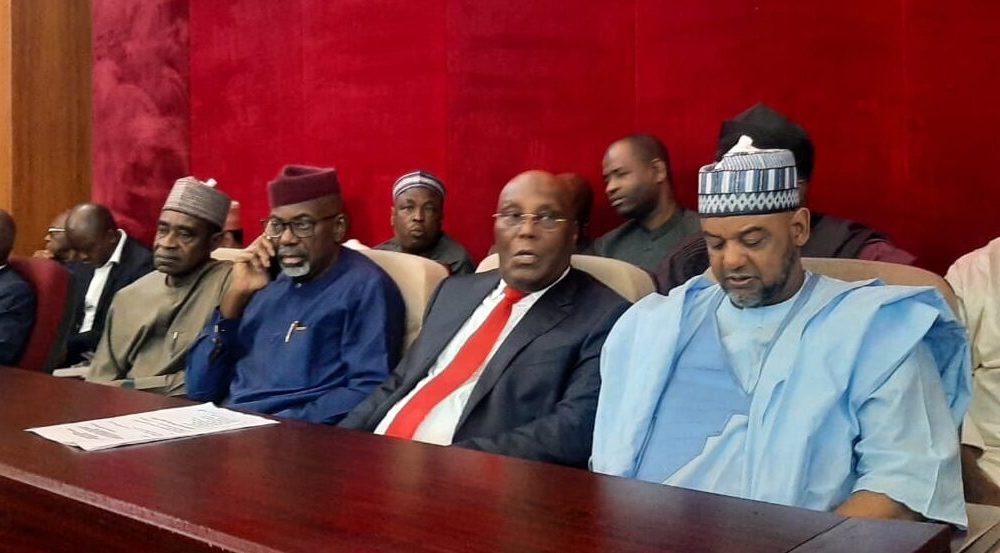 PoliticsAugust 1, 2023PEPC: PDP Atiku Appears As Parties Set To Adopt Written Addresses
PoliticsAugust 1, 2023PEPC: PDP Atiku Appears As Parties Set To Adopt Written Addresses
News
Post COVID-19 era: 7 reasons why N’Assembly must pass local content Bill
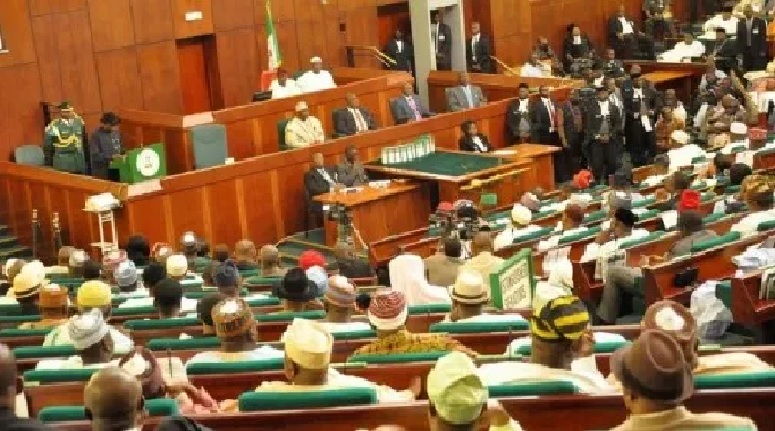
By Yemi Itodo
As the world prepares for measures in boosting economies after the ease of global lockdown, the Nigerian National Assembly, is once again, saddled with the responsibility of coming up with legislative piece and actions that could help rejuvenate the nation’s economy and help Nigerians overcome post-Corona virus hardship. adsbygoogle || []).push({}); adsbygoogle || []).push({});
One swift step that must be taken by both Houses of the National Assembly, is to give serious attention to, and speedily pass the local content enforcement Bill.
The Bill which is known as, the Nigerian Local Content Development and Enforcement Bill 2020, passed second reading on the floor of the House of Representatives, on Tuesday, 19th May, 2020.
The Bill is being sponsored by the Speaker, House of Representatives, Rt. Hon. Femi Gbajabiamila; Chairman, House Committee on Nigerian Content Development and Monitoring, Rep. Legor Idagbo and 7 others.
Amongst other things, the Bill seeks to expand the scope of local content in the extant NOGICD Act, thereby putting the Nigerian economy in the hands of Nigerians, creating jobs and enhancing the value of indigenous businesses in the post Covid-19 era.
Spokesman of the House, Rep. Benjamin Kalu, while analysing the general principles of the Bill in a statement on Monday, said, the idea of local content Bill or policy was to encourage local participation, ownership and control of certain key sectors by indigenous businesses.
“This is vital to preserving Nigeria’s socioeconomic independence and enhancing the ability of indigenous businesses to exploit local opportunities, while staying globally competitive”, Kalu said.
Stressing further, the Spokesman said, “so far, the key local content legislation in Nigeria is the 10-year old Nigerian Oil and Gas Industry Content Development Act 2010 (NOGICDA), which established the Nigerian Content Development and Monitoring Board (NCDMB) but is limited to the oil sector.
“Also notable, are the President’s efforts to extend local content compliance to the public procurement practices of federal parastatals vide his Executive Orders 003 and 005.
“However, as we celebrate the Africa Day (May 25), a day commemorating Africa’s independence, liberation and socioeconomic freedom from foreign dominion and exploitation, and in the light of the current COVID-19 induced global economic position which has forced countries to look inwards for economic growth and sustainability, it has become imperative to extend local content policy beyond the Petroleum Industry to other critical sectors like, ICT, Manufacturing, Agriculture, Power, Solid Minerals, Construction, Health, etc, through comprehensive legislation”.
THE SOCIO-ECONOMIC BENEFITS OF THE BILL IN NIGERIA’S POST COVID-19 ERA:
- The Bill, when passed and assented to, will promote local manufacturing and economic diversification with focus on ICT, Agriculture, Solid Minerals, Hydrocarbon Refining and Power.
It provides for incentives to encourage local processing of hydrocarbon resources, export of processed minerals and agricultural commodities, local manufacturing of equipment, machinery, spares, chemicals, ICT hardwares, development of softwares and others.
The Local Content Bill also provides for standardisation of locally made goods and locally sourced raw materials to make them competitive in the international market.
- The Bill makes it mandatory for Nigerian made goods and services in all public procurements; Nigerian content philosophy as a key requirement in all public sector procurements; provides for creation of local content departments in MDAs and provides requirement for Nigerian Content Plan (NCP) on major projects (above N100m) outlining minimum Nigerian Content thresholds for materials, labour and services required on the project.
It also strengthens Nigerian content requirements in solicitation of bids and requires Nigerian content compliance certificate as a pre-condition for contract awards; while recommending the creation of Nigerian Content Committee (NCC), to develop economy-wide local content policy.
- Creation of a robust R&D ecosystem to drive home grown technology development; promoting collaborations between Research institutions, product developers and end users of Research; as well as provision to incentives funding of research by public and private sector entities, is another green side of the Bill that would help develop the Nigerian system.
- In job creation drive to address unemployment, the Bill seeks to give first consideration to Nigerians with requisite skills in all public funded projects.
The Bill also provides for creation of national database of available skills amongst the Nigerian locals and requirements for approval and utilisation of expatriates will only role where there is immediate skills shortage.
- Local Content Enforcement Bill will address capacity building to develop resilient local supply chain; Provision for targeted sector-specific capacity building programmes and requirement to close capacity gaps in education, infrastructure, facilities and vendor development on the back of projects.
- Sustainable funding for local content is another clause in the Bill that will help promote and grow the Nigerian economy in Post COVID-19 era.
To achieve this, the Bill provides for creation of a Nigerian Content Trust Fund (NCTF), dedicated to implementing projects and programmes connected to developing local content. Application of the Fund to develop SMEs through low interest project-based financing schemes is also provided for in the Bill.
- The enactment of the Nigerian Local Content Development and Enforcement Bill will strengthen executive-legislature synergy and oversight on local content administration in key sectors of the economy.
It will also provide necessary legislative backbone for implementation of key initiatives that will evolve from the Presidential Economic Sustainability Committee as well as other policy actions by the Executive aimed at repositioning the Nigerian economy in the post COVID-19 era.
As the House of Representatives resumes plenary on Tuesday, 2nd June, 2020, it is instructive to consider further legislative actions for the speedy passage of the all-important Nigerian Local Content Development and Enforcement Bill 2020.
The Nigerian Senate should also, as a matter of urgent national importance, consider the concurrence of the Bill when passed by the lower chamber, for the immediate assent of President Muhammad Buhari, for the good of our economy and the citizenry.
Author Profile
Latest entries
 InterviewsJuly 22, 2023Why I seek Urgent Intervention on Karim and Wurkin Ethnic Crisis – Hon Lauya
InterviewsJuly 22, 2023Why I seek Urgent Intervention on Karim and Wurkin Ethnic Crisis – Hon Lauya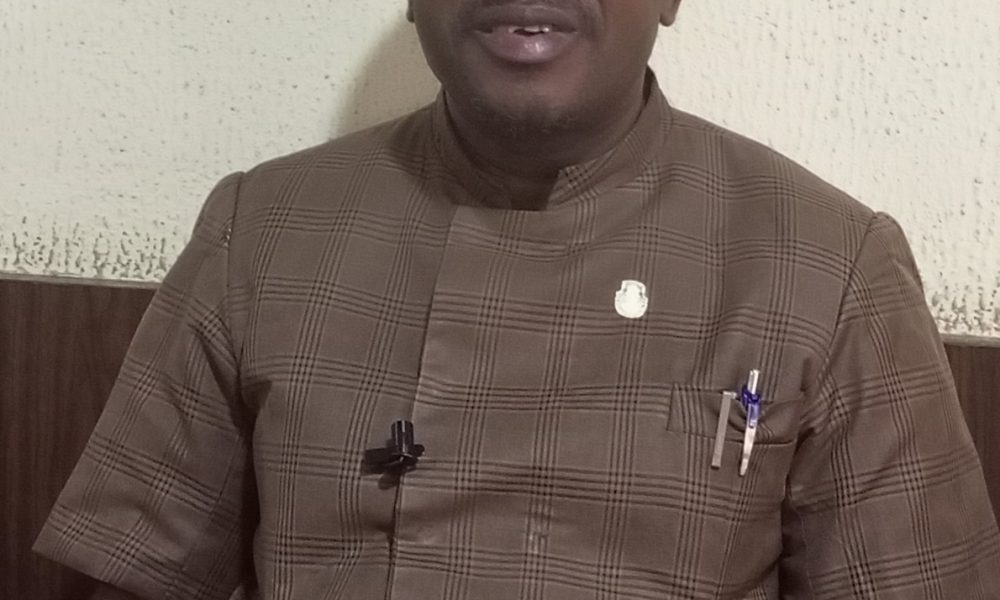 EducationJune 26, 2023Why I Support Fuel Subsidy Removal, How State Police Can Work – University Don
EducationJune 26, 2023Why I Support Fuel Subsidy Removal, How State Police Can Work – University Don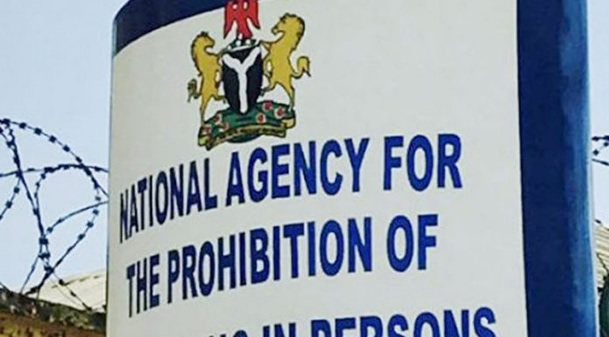 NewsSeptember 2, 2022Regulations 2019: NAPTIP Extends 60 Days Ultimatum Issued To Private Shelters And Rehabilitation Homes
NewsSeptember 2, 2022Regulations 2019: NAPTIP Extends 60 Days Ultimatum Issued To Private Shelters And Rehabilitation Homes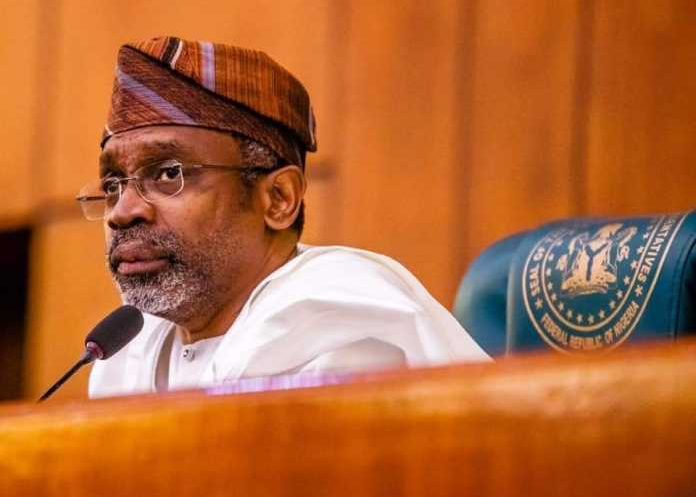 NewsJune 26, 2022Hon Buba Felicitates with Speaker Gbajabiamila at 60
NewsJune 26, 2022Hon Buba Felicitates with Speaker Gbajabiamila at 60
Opinion
9th National Assembly, a Parliament Waging a War Against its Own People

By Moses Idika
On June 11, 2019 the 9th National Assembly was inaugurated with fanfare in Abuja as Nigerians from all the 36 states converged on Abuja to celebrate the “induction” their representatives into the hallowed chambers of Nigeria’s apex lawmaking body. adsbygoogle || []).push({}); adsbygoogle || []).push({});
All the hotels and many private homes in and around Abuja were filled with well wishers, supporters and family members who arrived the nation’s capital to rejoice with their new or re-elected lawmakers. One week earlier, June 6th, 2019, the life span of the 8th National Assembly had elapsed and it subsequently adjourned, sine die.
By nightfall of same June 11, 2019, however, some of the earlier excitement had already began to wane in some circles, especially when the leadership of the National Assembly was “done and dusted” (as young Nigerian fresh university graduates would want to say).
The emergence of the duo of Dr. Ahmad Lawan (APC Yobe North) and Hon. Femi Gbajabiamila (APC Surulere 1, Lagos) as the President of the Senate and Speaker of the House of Representatives respectively, left many Nigerians feeling that the Nigerian parliament may have been “conquered” by some forces in the Presidency.
The feeling by Nigerians that the National Assembly may have been “conquered” was against a background hinged on the frosty relationship that characterized the immediate past 8th National Assembly led by Senator Bukola Saraki and Hon. Yakubu Dogara, the President of the Senate and Speaker of the House of Representatives respectively whereby, the Presidency blamed every misfortune of President Buhari’s government on the “sabotaging” efforts of the leadership of the 8th National Assembly. In other words, the Presidency insisted that until it installs its own lackeys as the leadership of the National Assembly nothing good was ever going to come out of the parliament.
In the 8th National Assembly, the Nigerian parliament was seen as being on the side, with the Nigerians, while the Presidency and the entire cabinet of President Buhari saw the Assembly as a “clog” in the wheel. The 8th National Assembly rejected several bills and initiatives that they argued were not in the interest of Nigerians. In retaliation, President Buhari withheld assent to several bills passed into law by the 8th National Assembly, including the very important electoral Act amendment bill. The President of the Senate was even docked for corruption charges, while other members of the 8th Assembly leadership had anti graft agencies unleashed on them endlessly throughout the life of the Assembly.
Chief among some of the outstanding decisions of the 8th Assembly include the rejection by the senate of a $29.96 billion loan request by President Muhammadu Buhari. In a media interview, the then Chairman of Senate Committee on Local and Foreign Debt, Senator Shehu Sani said that the Senate rejected the request to save Nigeria from fresh colonization by creditor nations and foreign financial instutitions.
“We turned down the Federal Government loan request of $29.96bn to save Nigeria from sinking into the dark gully of a perpetual debt trap.We don’t want our country to be recolonised by creditor banks.”
“If we had approved that loan request, our external debt could have catapulted to over $52bn and that is not sustainable.
“With the current escalation of borrowing, we will be walking into debt slavery and move from landlords to tenants in our own country.
“They will always tell you that even America is borrowing and I don’t know how rational it is to keep on borrowing because another country is borrowing,” Senator Sani explained.
Another watershed decision of the 8th National Assembly that shaped the perception of Nigerians about the parliament was the outright failure to sail through a bill that sought to gag Nigerians in the social media sponsored by then Spokesman of the Senate, Sabi Abdulahi, a senator from Niger state.
Enter the 9th National Assembly
Since June 11, 2019 when it was inaugurated, the President of the Senate, Ahmad Lawan promised that he was going to lead a senate, nay National Assembly that will “work collaboratively with the executive arm of the government.” And true to Lawan’s promise, the National Assembly has collaborated with the executive on all its decisions irrespective of what the intensions of the executive decision may be.
A Retinue of Anti People Legislations
As if choreographed, all the anti people and unpopular policies rejected by Nigerians and the 8th National Assembly have all found a fertile ground in the 9th National Assembly and the 9th session has barely spent one year out of its four year term.
The Anti Social Media Bill
Barely five months after its inauguration, the 9th National Assembly fired its first missile against Nigerians and specifically targeted its youths through the introduction of an obnoxious and draconian bill aimed at caging and gagging the young people from expressing themselves against the government policies, especially as government policies continues to incapacitate the future of Nigeria and Nigerians.
On November 5, 2019, Senator Muhammed Sani Musa (APC Niger East) introduced the “Protection from Internet Falsehood and Manipulations Bill 2019,” a bill he admitted to have copied from a country with some of the worst Human Rights record in the world, Singapore. The bill sought to ensure that Nigeria government effectively controlled what the citizens could say or not say, especially against the government.
As if that was not enough, one week after the introduction of the gag bill, a second bill couched in even more dangerous nomenclature was also introduced by another APC senator, also from Niger state, Sahabi Abdulahi who coincidentally is the Deputy Chief Whip of the Senate.
“The National Commission for the Prohibition of Hate Speeches (Est. etc.) Bill, 2019 otherwise known as the “Hate Speech Bill” sponsored by Sabi Abdulahi prescribed death by hanging for any Nigerian the commission he seeks to establish deemed to have made any “hate speech.” Curiously, the bill did not specify what constitutes hate speech, but rather left the interpretation of what constitutes hate speech to whims and caprices of the government through the head of the Commssion.
Notwithstanding, the obvious evil intentions of these two bills, the 9th Senate gave overwhelming support to them. It took a hard fight from Nigerians, including protests, community advocacy actions and outright intervention of various rights groups, including Amnesty International and the Nigerian media (the primary target of the two bills) to shoot down the draconian bills.
$22.7 Billion Loan
The 8th Senate had rejected an opaque request by President Muhammadu Buhari to borrow a whopping $29.96 billion from various countries and international financial institutions because, like Senator Shehu Sani said, the loan was going to plunge Nigeria into the abyss of “financial colonization” and subsequently “burying ourselves and leave behind for our children a legacy of debt burden.”
Nevertheless, on March 5th, 20020 the 9th Senate without any form of scrutiny approved the $22.7 billion loan request by President Buhari.
In fact, the speed with which the loan was approved made it impossible for even the lawmakers themselves to notice that the entire Southeast geopolitical zone, a region comprising 5 states were not in any way accommodated in the bogus projects the government said the loan was going to be expended on.
It took the over 4hours protest by the Southeast National Assembly caucus led by former Deputy President of the Senate on the alleged “exclusion” of the Southeast for the House of Representatives to pause a little before giving the bill a similar jet-speed approval as the Senate did. The loan request has since been approved, albeit clandestinely by the House.
Now the Infectious Disease Bill
The fourth in the series of anti-peoples bills that have come out of the 9th National Assembly within a six month period is the Control Of Infectious Diseases Bill 2020 (A Bill For An Act To Repeal The Quarantine Act And Enact The Control Of Infectious Diseases Act, Make Provisions Relating To Quarantine And Make Regulations For Preventing The Introduction Into And Spread In Nigeria Of Dangerous Infectious Diseases, And For Other Related Matters.) sponsored by the Speaker of House of Representatives, Hon. Femi Gbajabiamila (APC Lagos) Hon. Pascal Obi (APC, Imo), and Hon. Tanko Sununu (APC, Kebbi).
The latest offering to Nigerians from the 9th National Assembly may be the most dangerously encompassing yet in the history of anti-people law in Nigeria to date. This bill in a most audacious manner simply seeks to abrogate the rights of both the elites and masses of Nigeria.
The “satanic bill” as former lawmaker and a member of the 8th National Assembly, Senator Dino Melaye described it seeks to turn Nigeria into a banana republic where any Nigerian can be removed from the society and quarantined into oblivion by as simple as innocuous suspicion by a new leviathan to be called the Director General (DG) of the Nigeria Centre for Disease Control (NCDC).
Reading through the various provisions of the infectious disease bill, one will only then appreciate the position of the current DG of the NCDC, Dr. Chikwe Ihekweazu who told Gbajabiamila that he (Chikwe) was looking “forward to working with the Speaker to bring a new bill after the COVID-19 pandemic was over.”
Obviously Dr. Ihekweazu must have read the bill and wondered while anyone in their right mind would propose such a law in a democracy.
The Infectious Disease bill can pass for the worst bill ever contemplated in any democracy in the world. The bill is and outright frontal attack on the constitution of the Federal Republic of Nigeria and an audacious attempt to emasculate all the fundamental rights of Nigerians.
Even dead Nigerians are not exempted from the all powerful and audacious leviathan the bill seeks to create!
Section 4 (5) of the proposed bill seeks to strip medical practitioners in Nigeria of their right to maintain the privacy of their patients. Section 12 of the proposed bill seek to ensure that the dead were not allowed to rest in peace as it empowers the DG, NCDC to impound any dead body he “suspects” to have died of any infectious disease.
Section 13 empowers the DG, NCDC to forcefully seize and isolate anyone or groups (including minors which the bill provides that they be isolated with their parents) of persons they suspect to be infected of such a disease as they may deem to be infectious, while section 14 empowers DG, NCDC to place anyone in Nigeria under surveillance on suspicion of being infected by any disease the DG feels is infectious. Section 15 of the proposed bill even goes further to empower the DG, NCDC to be able to isolate entire areas or even communities they suspect of having an infectious disease. In section 15, the bill empowers the “health officer” or a police officer on the direction of the DG, NCDC to seize anyone on the street, in their homes, church or any gathering and quarantines such person or persons on any suspicion of having an infectious disease.
Sections 16, 17, 18, 19, 20, 21, 22, 23, 24, 25-30 makes various obnoxious provisions that expressly removes the rights of Nigerians to gather in groups, including religious gatherings. It is instructive that the infectious disease bill poses serious threat to all sections of Nigeria’s national life, including abrogating the rights of governors and the President and giving same to the all powerful Director General of the NCDC.
The infectious disease bill also removes the courts from the affairs of Nigerians as it seeks to empower the Minister of Health to be the last arbiter (sections, 17, 18, 19 and 20). In the bill, the Minister of Health and the Director General, NOT the courts decides the fate of the offenders of the obnoxious law.
Good enough, while the National Assembly has the oversight rights over other arms of the government, the people, happily are the ones constitutionally empowered to oversight the parliament.
Nigerians must, therefore, as a matter of survival stand up to the opaque intentions of the 9th National Assembly which is daily baring its fangs to strangulate Nigerians and return the country to a despotic authoritarian nation.
Author Profile
Latest entries
 InterviewsJuly 22, 2023Why I seek Urgent Intervention on Karim and Wurkin Ethnic Crisis – Hon Lauya
InterviewsJuly 22, 2023Why I seek Urgent Intervention on Karim and Wurkin Ethnic Crisis – Hon Lauya EducationJune 26, 2023Why I Support Fuel Subsidy Removal, How State Police Can Work – University Don
EducationJune 26, 2023Why I Support Fuel Subsidy Removal, How State Police Can Work – University Don NewsSeptember 2, 2022Regulations 2019: NAPTIP Extends 60 Days Ultimatum Issued To Private Shelters And Rehabilitation Homes
NewsSeptember 2, 2022Regulations 2019: NAPTIP Extends 60 Days Ultimatum Issued To Private Shelters And Rehabilitation Homes NewsJune 26, 2022Hon Buba Felicitates with Speaker Gbajabiamila at 60
NewsJune 26, 2022Hon Buba Felicitates with Speaker Gbajabiamila at 60

